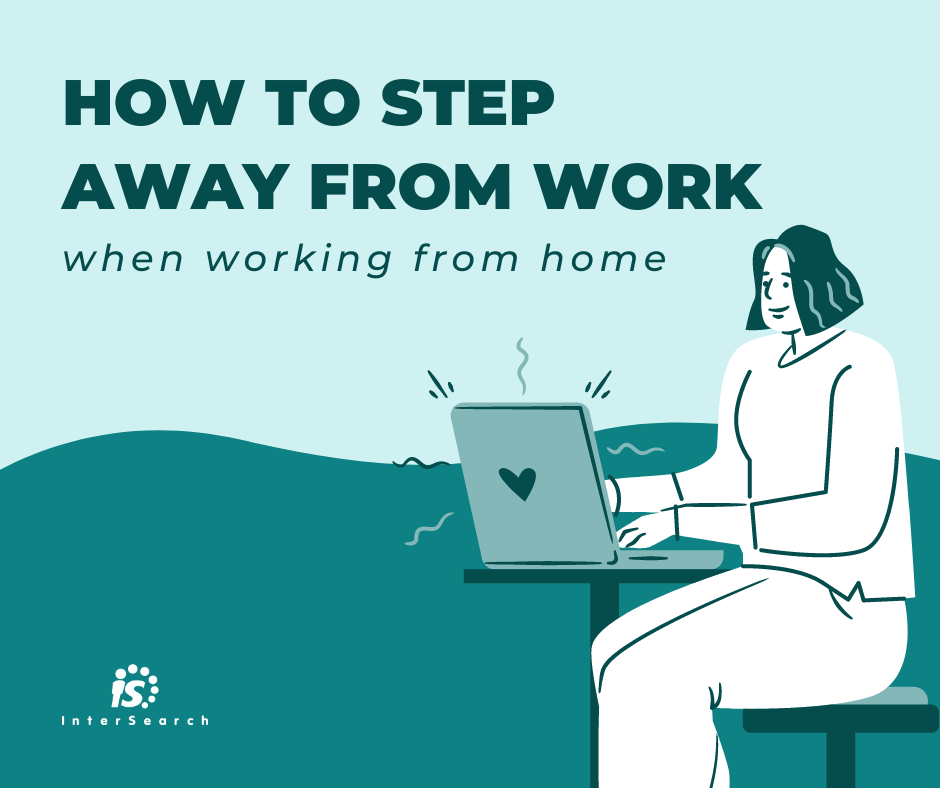HOW TO NAIL YOUR NEXT JOB INTERVIEW
INTERSEARCH ASSOCIATES

It’s no secret that preparing for a job interview has changed a lot over the years. These 8 tips are sure to impress the interviewer and get that job offer.
Body Language
It is often said that our body language is the expression of our emotions and studies have proven this. So, what is your body language saying about you in an interview?
One example is posture. Slouching or sitting back in a chair conveys lack of confidence or passive attitude, a lack of initiative. Eye contact is another “silent speaker.” Although eye contact can vary based on cultural differences, lack of eye contact in an interview raises a question about the person’s honesty and confidence.
Be Ready for a Video Job Interview
We are experiencing unprecedented times worldwide. Remote school and work has been popular for awhile, but social distancing to slow the spread of COVID-19 has caused many industries to get creative and utilize the technology. We are prepared to help facilitate video interviews for our clients and candidates.
Sometimes it can be a little intimidating to be on camera, especially in a high-stakes situation such as a job interview. But, it’s easy to make a great first impression with a video call.
Be sure to take the call in location that is well lit, quiet, and free from distractions. Pay special attention to your background, notify anyone near you that you cannot be interrupted during the call, and take care to ensure your technology is working.
Use earbuds with a microphone or a headset to ensure you have quality audio that does not echo. Also consider the lighting – sitting in front of an open window will fill your frame with flattering natural light.
Last, just as with an in-person interview, practice good posture. Sit upright, shoulders back, and maintain eye contact. This will portray confidence and professionalism.
Prepare Your Pitch
When the interviewer asks the inevitable question, “Tell us about yourself,” how do you answer?
Many enter into a long drawn-out history lesson of their life, sometimes including silly hobbies, sprinkled in with some strengths and weaknesses, hopefully circling back to highlighting some personality traits.
There isn’t anything inherently wrong with that, as a hiring manager typically does want to know a little bit about who you are as a person.
But what they’re really asking is: What makes you special? Why should we hire you?
Tell them things that no other candidate can. Take some time to think through your “elevator pitch” beforehand so you’re prepared for this question. Put together a couple of key points that really showcase your abilities, making sure to touch on your experience and achievements.
Be Prepared
Never go into an interview unprepared. That means dressing for success, having a positive mindset, and being ready to answer the hard questions. Be sure to also take the time to research the company you are interviewing for.
When asked, “why do you want to work here?” the hiring manager is wanting to see if you’d be a good fit, but also seeing how much you know about the company. A quick internet search will pull up credible sources including the company website and social media channels, industry experts and trade organizations.
Evaluate the company’s ranking among their peers for sales and market presence, technology and culture. Read their mission statement and investigate their reputation from online reviews.
Be prepared to briefly address how these company attributes align with your goals and values.
Looking for long term?
Hiring managers are often looking to gauge a candidate’s goal setting ability, and a great way to inquire about this is by asking “where do you see yourself five years from now?”
This helps to also see if you are seeking to fulfill a short-term goal and then move on, or are you committed to a longer-term goal with company?
You may see this as a great opportunity to present your vision, but keep in mind that the specific goals may not be as relevant as showing that you are able to set goals and reach them.
Consider answering this question by describing goals you set in the past and how you met them. Follow up by asking what the career paths (notice this is plural as there may be several paths) look like for you with their company. This will also show that you reach the goals you set and that you are planning on a future with the company.
Be sincere
What would your former boss say about you? When asked this, most people think that the interviewer wants to know all of the positive attributes that others would say. The real reason for this question is usually to assess your level of sincerity and how open you are to receive constructive feedback. Be prepared to describe a prior weakness or shortcoming and how you overcame it.
Know why should they hire you
This is the show-stopper question. Of all the questions during an interview, this one that carries the most points on the job offer barometer. This is your opportunity to brag about yourself, something most people are not fully comfortable in doing which is why this question requires a rehearsal. The real question here is: What is your level of confidence in yourself?
Have questions ready
You’ve spent a solid hour with these folks getting learning all about this position.
They’ve answered everything thoroughly and you have a good grasp on the responsibilities, company culture, and job overall. But then they ask the inevitable, “Do you have any other questions for us?”
What they are really gauging is how prepared you are and how interested you actually are in the position. By the time you get to this question in an interview, the hiring manager has likely answered most of your questions. Nonetheless, you always want to be prepared with at least one question.
The questions you never want to ask are those related to compensation, benefits or company policy as these are generally answered by a Human Resource representative.
Two great questions to have ready are:
- What makes you excited about working for the company?
- What will you expect me to achieve in the first 90 days on the job?
Get help if needed
If you’re looking to make a job change, we can help. We’re industry experts, have established relationships with employers across the country, and will coach you through each step of your job transition. Contact us to start your search today.






CONTACT US
FIND US ONLINE
Connect with us on Facebook and LinkedIn
LET'S TALK
Contact Us - Home Page
We will get back to you as soon as possible.
Please try again later.
ALL RIGHTS RESERVED | INTERSEARCH ASSOCIATES | PRIVACY




